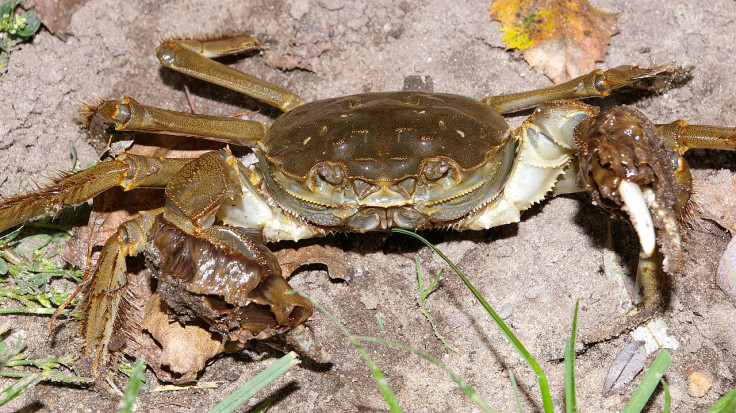Chinese Hairy Crab Discovered in Scotland 'Poses Threat to Trout and Salmon'

The Chinese hairy crab has been discovered in Scotland for the first time and experts said the creatures have the potential to destroy local ecosystems.
The species, also known as the Chinese mitten crab, pose a serious threat to salmon and trout in Glasgow's River Clyde, where the remains of one was found.
Researchers from Royal Holloway, University of London, and the Natural History Museum, said the Mitten Crab Recording Project has already confirmed populations are present across rivers in the UK but this was the first time they has ventured as far north as Scotland.
The creatures have been revealed to be one of the 100 worst alien species as they cause severe structural damage to riverbanks by burrowing, destroying local ecosystems.
A delicacy in China, the crabs are named after the furry mats covering their claws. They are native to East Asia but are now found across the US and north-east Europe. They were first found in the River Thames in 1935, probably a result of shipping.
One was first sighted in Scotland two weeks ago when shelled remains were found in Dalmarnock.
David Morritt, from Royal Holloway, said: "Our laboratory feeding trials with sub-adult Chinese mitten crabs reveal that the crabs apparently show a preference for larger eggs, which are easier to handle and probably more profitable in terms of energy gained.
"The occurrence of these Chinese mitten crabs in a Scottish river could have a devastating impact on the famous salmon and trout fishing rivers should they manage to reach parts of the catchments where these fish spawn."
However, Jo Long, senior conservation policy officer at the Scottish Environment Protection Agency, said it was important to assess the danger before looking at worst-case scenarios.
"While the remains of an adult Chinese mitten crab have been found in the River Clyde, we do not yet know whether there is a breeding population in the wider Clyde estuary," South China Morning Post quoted her as saying.
"I think we would be concerned if there was a population that was beginning to emerge."
© Copyright IBTimes 2024. All rights reserved.






















